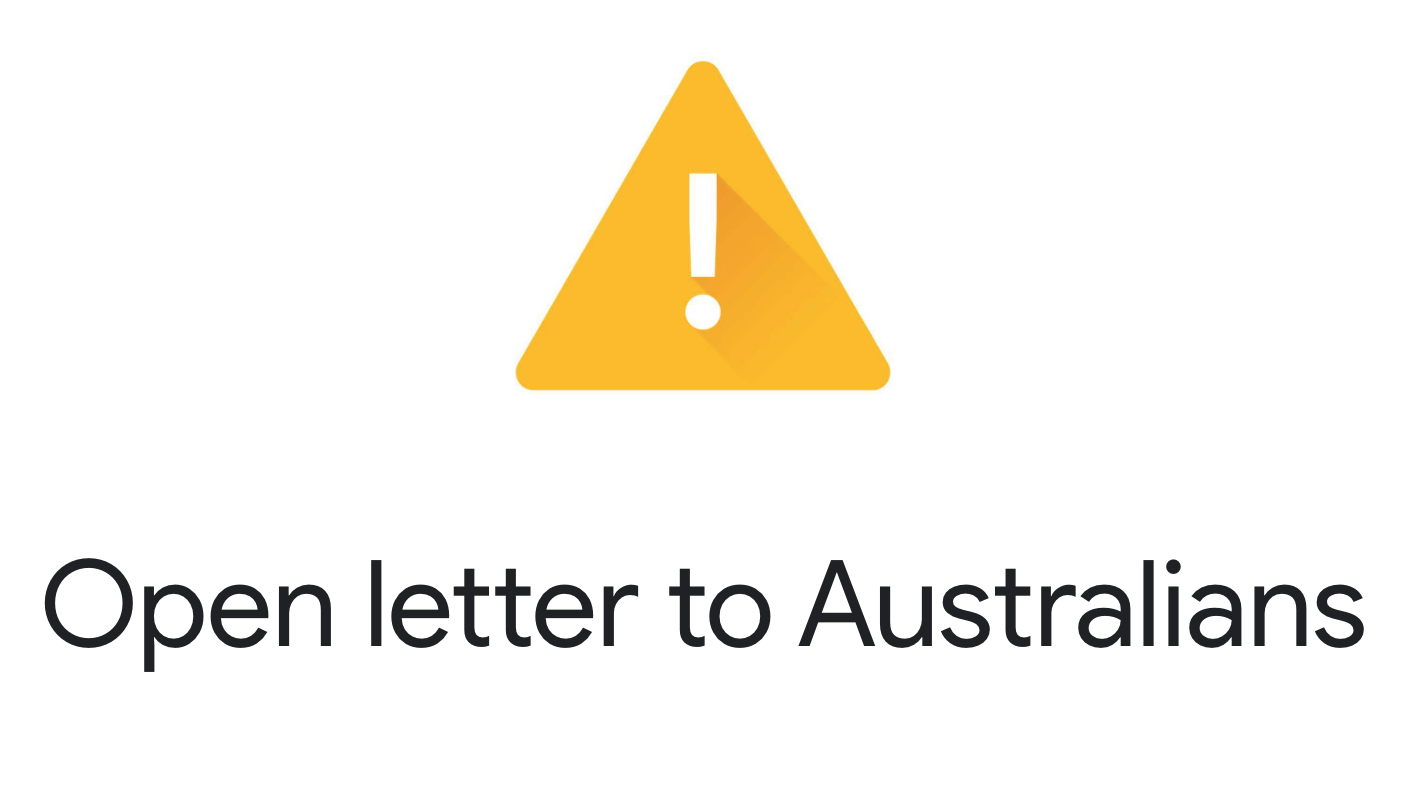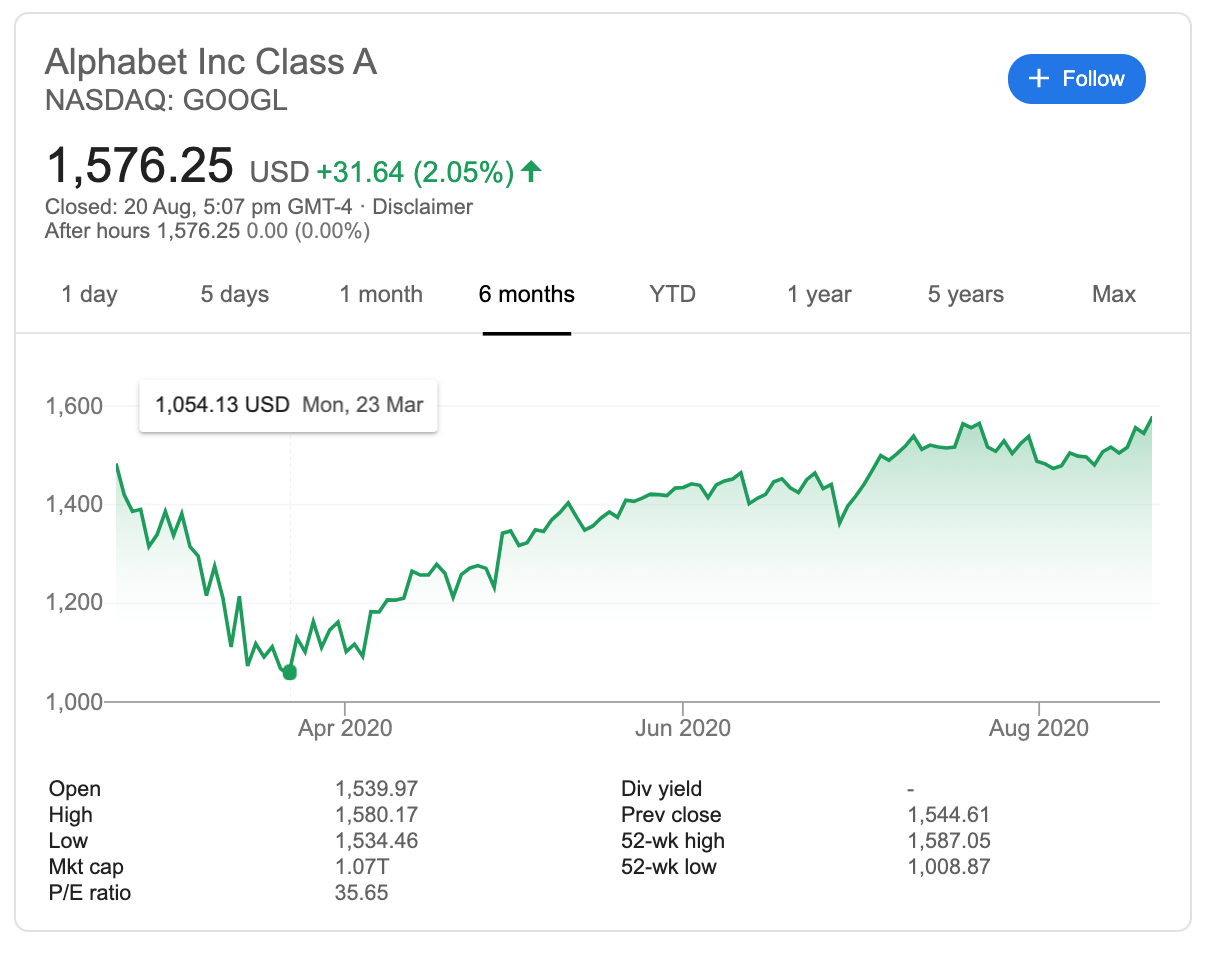
Don’t be evil…? To your shareholders, at least.
You may have noticed on the homepages of Google and YouTube this week an announcement claiming that the way you search on Google and use YouTube is at risk. The number of alarmed people who forwarded it to me was astounding. If anything, it highlights the importance of Google’s services to our daily lives, how much people love the products, but above all, how powerful Google actually is. Therein lies the problem.
Like everyone, I use their products all day, every day. They are incredible. As far as tech goes, I love it more than most people and have built an entire career around it. In my view, Google is the most powerful organisation in the world by far. Just think about this for a second:
The only thing you never lie to is your search engine.
Really, think about the implications of that for a few moments. It knows all your habits, locations, ideas, proclivities, and your deepest and darkest secrets. I can promise you that none of your searches are anonymous.
Google (owned by Alphabet) is the fabric that holds together modern society. If this power were to be left unchecked, it wouldn’t end well for anyone. Absolute power never does. So you can regard this post as a quasi public service announcement from the Sammatron.
What happened: The ACCC has put forward a new regulation called the News Media Bargaining Code. This code says that Google and Facebook, who collectively control almost 60% of digital advertising revenue in Australia, will have to negotiate and pay news content creators for their contribution. The reasoning behind the mandatory code is to ensure we have a healthy news media sector and that the financial rewards of creating such journalistic content are not redirected towards the gatekeepers.
How Google responded: This week Google put out an Open Letter to all Australians to scare them into believing this proposal would fundamentally change their services for the worse. Which, quite frankly, was propaganda.
The letter: The appeal from Google Australia’s CEO Mel Silva was placed on the homepages of Google services search and YouTube. This reached 95% of Australian internet users. Google has more reach to Australians than any other media organisation, or commercial entity, in our country’s history. Of course, the irony is that the placement of this call to arms was on the homepages of its key services – an archetypal demonstration of their absolute power. The letter claims that the proposal for Google to pay news content creators is unfair!
The letter is incredibly misleading and in my opinion, deceptive conduct – a view echoed by the ACCC.
- “Dramatically worse search results” – Not true. A lie. (News is a tiny percentage of search. In fact, only 20% of Google search terms is new, ie never been searched for before by anyone.
- “Data being handed over to big news business” – Not true. A lie. Nowhere in the proposed regulations states that Google is required to hand over user data. By comparison, Google is now valued at $1.3 trillion (AUD), while Australia’s two biggest news organisations have a combined value of only $13 billion (AUD). They are not even 1% of the size of Google. It turns out Google is the big news company trying to trick people into thinking it is a cute little startup. (See financials below.)
- “Free services at risk’ – Very unlikely. Google chooses to its own usage policy and decides whether its services are free. Their entire business model is built around data surveillance to sell to advertisers. I’d bet my net worth that this won’t change.
- “Artificially inflate news rankings” – Well, it’s their search engine. They control the algorithms to decide their rankings. This is a classic red herring.

Since Covid, the power of big technology firms has only increased. Alphabet’s share price is actually up 50% since April. As I’ve said before, opting out isn’t an option any more.
The world is watching: Google fired such a heavy-handed response because the world is watching. What happens here could influence policy around the world and further focus regulatory scrutiny on the behemoth. This is an important global play for Google, as the issue of dematerialising news resources is being raised in every democracy. Rather than caring about the citizens they purport to serve, they’d rather maximise their short-term profits. We should be very suspicious.
Monopoly power: The real issue of course is that the internet is broken. The web we grew up to love and believed would make the world more equal has become very unequal indeed. It’s essentially become five giant websites with screenshots from the other four, each with monopoly powers in their dominant sectors. Not only are they monopolies, they contribute little to our country as corporate citizens. Google has earned more than $5 billion (AUD) revenue from the Australian market place, yet only contributed $40 million to our tax coffers last year. That’s right, not even 1% of their revenue. A reminder here that the corporate tax rate in this country is 30%. At their global gross margins of 19%, its tax bill should’ve been closer to $1 billion (AUD). That would build a few new hospitals and schools.
Is the ACCC code the right action? I am of the view that the ACCC has got it wrong here. If they believe there has been a monopolistic abuse of power, then they should act to prevent that power. The shape of the Australian news ecosystem, while affected by Google’s revenue redirection, shouldn’t be propped up by transferring money from one behemoth to a select number of local news arms. The real solution should be anti-trust action and other forms of data and algorithm regulation.
Digital sovereignty: Australia lacks sovereignty over the most important technology in the modern era – digital infrastructure. If we want to remain a sovereign nation, then we must hold corporations to account, by having a thriving news sector and not permitting monopolies mislead consumers. We need to get better at ensuring all companies pay their fair share of taxes like we residents do. To go one step further, our country needs to start investing in its own digital infrastructure for key products like search, social, maps and video platforms.
If we don’t own and control the connecting fibre of our modern economy, then we sure as hell should not be afraid of regulating it. If there’s anything this country doesn’t like, it’s a bully – and Google is being one. At times like this, we should never confuse services we like with the behaviour from the companies who provide them. Stand tall and push back. We need you to speak up.
– – –
Steve.